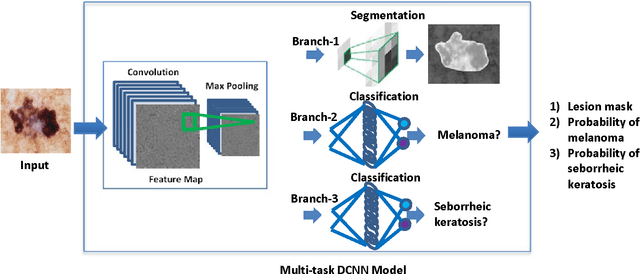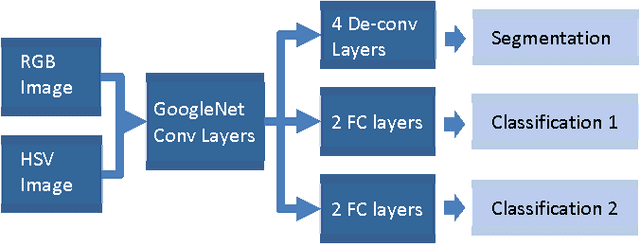A Novel Multi-task Deep Learning Model for Skin Lesion Segmentation and Classification
Paper and Code
Mar 03, 2017



In this study, a multi-task deep neural network is proposed for skin lesion analysis. The proposed multi-task learning model solves different tasks (e.g., lesion segmentation and two independent binary lesion classifications) at the same time by exploiting commonalities and differences across tasks. This results in improved learning efficiency and potential prediction accuracy for the task-specific models, when compared to training the individual models separately. The proposed multi-task deep learning model is trained and evaluated on the dermoscopic image sets from the International Skin Imaging Collaboration (ISIC) 2017 Challenge - Skin Lesion Analysis towards Melanoma Detection, which consists of 2000 training samples and 150 evaluation samples. The experimental results show that the proposed multi-task deep learning model achieves promising performances on skin lesion segmentation and classification. The average value of Jaccard index for lesion segmentation is 0.724, while the average values of area under the receiver operating characteristic curve (AUC) on two individual lesion classifications are 0.880 and 0.972, respectively.
 Add to Chrome
Add to Chrome Add to Firefox
Add to Firefox Add to Edge
Add to Edge